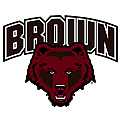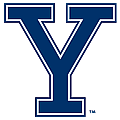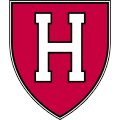 Brown
BrownNickname: Bears
Location: Providence, RI
Founded: 1764
Conference: ECAC (Ivy League)
National Championships: 0
Last NCAA Appearance: 1993
Last Frozen Four: 1976
Coach: Brendan Whittet (4th season)
2011-12 Record: 9-18-5 (5-13-4 ECAC, 12th place)
Series: RPI leads, 55-22-6
First Game: December 28, 1951 (Troy, NY)
Last RPI win: January 20, 2012 (Providence, RI)
Last Brown win: March 7, 2010 (Troy, NY)
2012-13 games: December 8, 2012 (Providence, RI); February 15, 2013 (Troy, NY)
Key players: D Richie Crowley, sr.; F Chris Zaires, sr.; G Marco DeFilippo, jr.; F Garnet Hathaway, jr.; D Dennis Robertson, jr.; D Matt Wahl, jr.; F Ryan Jacobson, so.; F Massimo Lamacchia, so.; F Matt Lorito, so.; F Nick Lappin, fr.
Key losses: D Jeff Buvinow, F Jack Maclellan, F Bobby Farnham, G Mike Clemente, F Jarred Smith
Previous KYE installments:
That last year outside of the bottom four of the league also coincides with the last winning season Brown has had, and with seven losing campaigns in a row, the Bears are second (along with Bowling Green) for the longest such streak in the nation outside of Atlantic Hockey (Alaska-Anchorage has not had a winning season since 1993, their last year as an independent).
For whatever reason, even though Brendan Whittet has basically had two decent recruit classes in a row, it hasn't translated into success on the ice for the Bears, though the school is certainly becoming known as a breeding ground for tough guys, with recent grads Aaron Volpatti and Harry Zolnierczyk seeing NHL time in the last couple of seasons. And despite solid careers from Buvinow, Maclellan, and Farnham, Brown has continued to be cellar dwellers.
This season, the Bears could well be at least a minor force to be reckoned with offensively. Jacobson's freshman year was a very bright point in a difficult season, and Lorito developed nicely as an assist leader as well. Lappin, who led the USHL's Tri-City in scoring last season, comes in to add to the youth movement in Providence, but the discussion on Brown's freshman class will surely revolve around how good it could have been with Kevin Roy, the USHL's Player of the Year and 4th-round draft pick of the Anaheim Ducks. Roy was expected to be one of the ECAC's top rookies, but he decommitted from Brown in July. His older brother, Derick, was also supposed to be arriving as a goaltender, but he decommitted at the same time. Both are now bound for Northeastern instead.
The loss of Buvinow and Clemente means the Bears essentially start from scratch on defense, with Buvinow consistently considered among the better defensemen in the ECAC and Clemente more or less being the team's top choice goaltender for four straight years (he split time with Dan Rosen his freshman year). DeFilippo saw a limited amount of action last year and was not sharp when he was in net (including the game against RPI in Providence). Still, there is some talent with Robertson and Wahl especially, but the Bears are going to need some people to stand up in a big way to bolster what was already one of the nation's weaker defenses.
Elements of Brown's freshman class that have shown up on campus at least arrive with decent backgrounds, mostly coming from the USHL and the BCHL, the top junior leagues in North America, but they're going to have a tall task in front of them. Kevin Roy could have been a major shot in the arm for this team, but his defection certainly represented a major blow for a program that continues to struggle to climb out of the league's depths. Unless Bruno can parlay their reputation for toughness into a cohesive unit capable of putting up good defense against the rest of the ECAC, it's likely to be another long season in Providence.
For whatever reason, even though Brendan Whittet has basically had two decent recruit classes in a row, it hasn't translated into success on the ice for the Bears, though the school is certainly becoming known as a breeding ground for tough guys, with recent grads Aaron Volpatti and Harry Zolnierczyk seeing NHL time in the last couple of seasons. And despite solid careers from Buvinow, Maclellan, and Farnham, Brown has continued to be cellar dwellers.
This season, the Bears could well be at least a minor force to be reckoned with offensively. Jacobson's freshman year was a very bright point in a difficult season, and Lorito developed nicely as an assist leader as well. Lappin, who led the USHL's Tri-City in scoring last season, comes in to add to the youth movement in Providence, but the discussion on Brown's freshman class will surely revolve around how good it could have been with Kevin Roy, the USHL's Player of the Year and 4th-round draft pick of the Anaheim Ducks. Roy was expected to be one of the ECAC's top rookies, but he decommitted from Brown in July. His older brother, Derick, was also supposed to be arriving as a goaltender, but he decommitted at the same time. Both are now bound for Northeastern instead.
The loss of Buvinow and Clemente means the Bears essentially start from scratch on defense, with Buvinow consistently considered among the better defensemen in the ECAC and Clemente more or less being the team's top choice goaltender for four straight years (he split time with Dan Rosen his freshman year). DeFilippo saw a limited amount of action last year and was not sharp when he was in net (including the game against RPI in Providence). Still, there is some talent with Robertson and Wahl especially, but the Bears are going to need some people to stand up in a big way to bolster what was already one of the nation's weaker defenses.
Elements of Brown's freshman class that have shown up on campus at least arrive with decent backgrounds, mostly coming from the USHL and the BCHL, the top junior leagues in North America, but they're going to have a tall task in front of them. Kevin Roy could have been a major shot in the arm for this team, but his defection certainly represented a major blow for a program that continues to struggle to climb out of the league's depths. Unless Bruno can parlay their reputation for toughness into a cohesive unit capable of putting up good defense against the rest of the ECAC, it's likely to be another long season in Providence.







